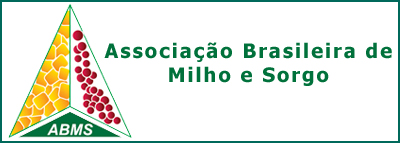COMBINING ABILITY FOR NITROGEN USE IN A SELECTED SET OF INBRED LINES FROM A TROPICAL MAIZE POPULATION
DOI:
https://doi.org/10.18512/1980-6477/rbms.v1n03p%25pKeywords:
Zea mays L.Abstract
Tolerance rather than resistance, is the crop response mechanism sought by maize breeders for cultivation under low levels of nitrogen. Although improved nitrogen use is in intensive research by maize breeders, little is known about its inheritance on tropical maize germplasm. The objectives of this study were to evaluate the N use through yield and other traits, and to determine the importance of general (GCA) and specific (SCA) combining ability effects in the inheritance of N use, for yield, using a diallel of crosses among a selected set of tropical maize lines under two levels of N. A comparison of relative magnitudes of GCA and SCA for ear yield (EY) suggests that this trait was governed more by dominance than additive gene action, and the contribution of additive genes for nitrogen utilization efficiency decreases under N nutrient shortage. Since, for this set of lines, only non additive effects were significant for this trait, the lines with favorable SCA could be used as donors of N use efficiency in a hybrid development program. The line L2 was identified as being the most suitable combining overall parents in this study for improving EY. The crosses L 3 x L 7, L 1 x L 2 and L 7 x L 10 showed to be promising combinations based on the significant SCA effects for lines and hybrids development. The results of this study can enhance the use of promising inbred lines in a program focused on developing hybrid that efficiently can take up and uses nitrogen.
Downloads
Published
How to Cite
Issue
Section
License
Authors retain copyright and grant the journal right of first publication with the work simultaneously licensed under the Creative Commons Attribution License that allows the sharing of work and recognition of the work of authorship and initial publication in this journal.
Authors are able to take on additional contracts separately for non-exclusive distribution of the version of the paper published in this journal (eg, in an institutional repository or publish as a book), with acknowledgment of its initial publication in this journal.
Authors are permitted and encouraged to post their work online (eg, in institutional repositories or on their website) at any point before or during the editorial process, as this may leadto productive exchanges, as well as increase the impact and citation of published work.




